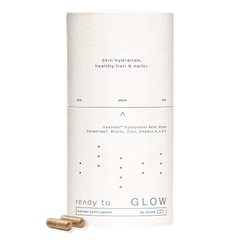The Gut-Brain Connection: Nurturing Gut Health to Alleviate Stress

From hectic work schedules to personal challenges, stress can take a toll on both our mental and physical well-being. Surprisingly, the key to managing stress might lie within our own bodies, specifically in the intricate world of our gut.
The gut-brain axis is a bidirectional communication system connecting the central nervous system with the enteric nervous system in the gastrointestinal tract. This connection is more than just anatomical; it involves complex biochemical signaling that influences our emotional and mental states. Recent research has illuminated the profound impact of gut health on stress levels and mental health.
At the heart of gut health is the microbiome – a diverse community of trillions of microorganisms residing in our digestive system. These include bacteria, viruses, fungi, and other microbes, collectively contributing to the delicate balance within our gut. The health of this microbiome is crucial for proper digestion, nutrient absorption, and immune system function.
Conversely, stress can wreak havoc on our gut health. The "fight or flight" response triggered by stress can alter the composition of the gut microbiome and compromise the integrity of the intestinal barrier. This, in turn, may lead to inflammation and a host of gastrointestinal issues, creating a feedback loop where stress and gut health influence each other negatively.
The gut produces neurotransmitters, such as serotonin and gamma-aminobutyric acid (GABA), which play a vital role in mood regulation. An imbalance in these neurotransmitters due to poor gut health can contribute to symptoms of anxiety and depression.
Chronic inflammation in the gut may trigger an exaggerated stress response. This inflammation can send signals to the brain, influencing emotional and cognitive functions and exacerbating stress levels. The vagus nerve, a major component of the gut-brain axis, facilitates communication between the gut and the brain. Signals from the gut can influence the release of stress hormones and impact emotional well-being.
Nurturing Gut Health to Alleviate Stress:
Dietary Changes:
Embrace a diet rich in fiber, prebiotics, and probiotics. These support the growth of beneficial gut bacteria and promote a healthy microbiome.
Stress Management Techniques:
Incorporate stress management techniques such as mindfulness, meditation, and deep breathing exercises into your daily routine to mitigate the impact of stress on the gut.
Adequate Sleep:
Prioritize sufficient and quality sleep, as it plays a crucial role in maintaining both gut health and stress resilience.
Regular Exercise:
Engage in regular physical activity, as exercise has been shown to positively influence the gut microbiome and alleviate stress.
As we delve deeper into the fascinating realm of the gut-brain connection, it becomes evident that nurturing our gut health is not just about digestive well-being but has far-reaching implications for our mental and emotional resilience. By understanding and actively supporting the intricate interplay between our gut and brain, we can embark on a journey toward improved stress management and overall well-being. Remember, a happy gut may just be the key to a happier, less stressful life.
Kate Ong
Kate is a student at the University of Pennsylvania studying Economics and English. She is originally from the Philippines and joined the Ready To team in 2023. She is passionate about transparency and ingredient traceability.
DATE
May 10, 2024No products found in this collection.







